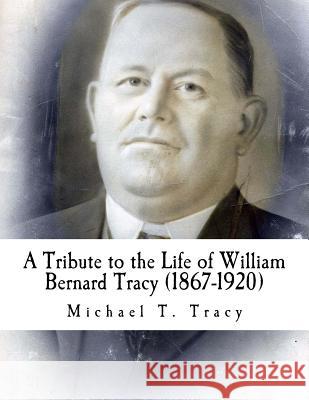A Tribute to the Life of William Bernard Tracy (1867-1920) » książka
A Tribute to the Life of William Bernard Tracy (1867-1920)
ISBN-13: 9781533167743 / Angielski / Miękka / 2016 / 40 str.
William Bernard Tracy was raised on his father's farm at Saranac, Clinton County, New York. At the age of six he would lose his mother, and a few years later, his father remarried and relocated to Kansas. He grew up under the care of his older brothers and sisters. He was rather short and stood 5 feet 4 and 5/8 inches tall, had gray eyes and short light brown hair. Tracy enlisted in the U.S. Army at the age of 20 and served in the last of the American Indian wars of the late 1880s. While in the army he developed a great interest in music and also served as a musician playing the saxophone. After his military service in South Dakota, he traveled east to Chicago, Illinois where by this time some of his siblings were already residing. While in Chicago, he met a young woman named Mary Ann Cronin and after their subsequent marriage they raised a family of four children. William began working as a prison guard at the Illinois State Penitentiary (Joliet Correctional Center) at Joliet, Illinois during the early 1890s; by 1896 the family moved back to the City of Chicago where William worked as a teamster. By 1899, through the efforts of his eldest brother Peter Tracy, he began temporarily working as a railroad conductor with the Chicago Surface Lines. He also later acquired employment as a veterinarian for the Chicago Fire Department, was a meat inspector for the British government and finally was a foreman for the Fort Dearborn Smelting Refueling Company. He also loved reading and writing poetry, one such poem entitled "Things Not Done Before." William B. Tracy would die under a rather an unusual circumstance during the excessive heat of the summer of 1920. This then is a tribute to the very interesting life and times of William Bernard Tracy.











